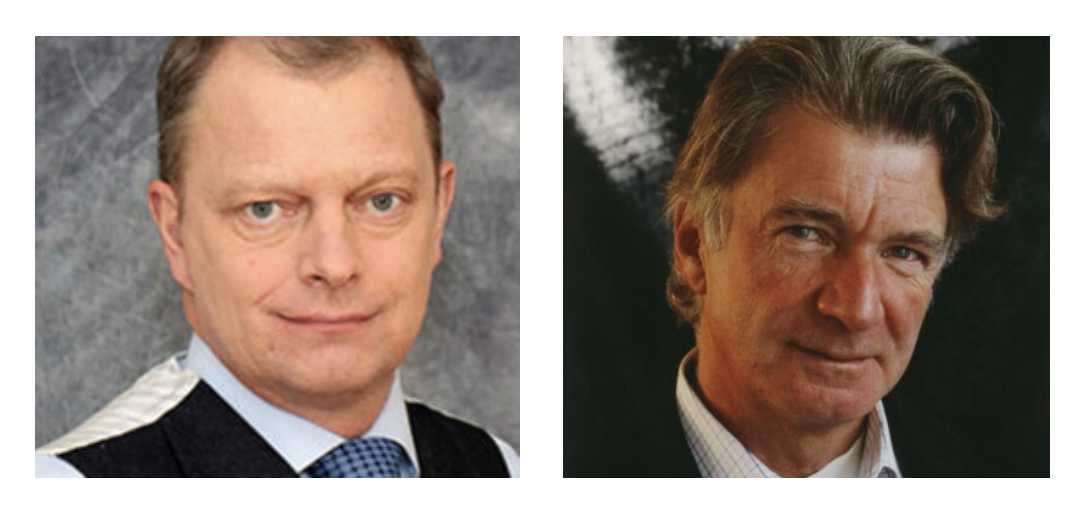Vladimir Putin’s regime is heavily dependent on energy exports and old energy technologies. Half of the Russian budget comes from the export of fossil fuels. In addition, Russia, together with Kazakhstan and Uzbekistan, accounts for more than half of the world’s uranium mining, and all nuclear reactors that have begun construction outside China after 2019 have a Russian supplier. The rapid expansion of cheap renewable electricity production in the world is, therefore, a threat to the Russian economy. Four-fifths of all new electricity production capacity put into operation in 2020 was based on renewable energy.
The Russian fossil fuel economy will be weakened even more by the fact that batteries have also become cheaper so that electric cars are replacing internal combustion engines to a rapidly increasing degree. The batteries can also store electrical energy that can be used instead of gas turbines to meet peaks in electricity consumption.
When cheap renewable electricity is also used to produce hydrogen and other fuels when there is plenty of wind or sun – and thereby balancing the electricity system – additional oil and gas can be replaced. These opportunities are given high priority within the EU and in various industrial strategies. In Sweden, we see Hybrit and H2 Green Steel replacing coal with hydrogen. We also see a rapid expansion of wind turbines – now without subsidies – a rapidly growing battery industry and plans to produce fuels for both aviation and shipping with fossil-free electricity and CO2 from biofuel-fired CHP plants.
Despite the rapid expansion of renewable electricity, the electrification of the transport sector, and industry projects favoring different kinds of renewables, the EU is still an importer of about 90% of the fossil gas and 100% of the uranium used for energy purposes. The value of Russia’s energy exports to the EU is, at today’s prices, in the order of one billion Euros – per day! Despite the fact that energy revenues are vital for the Russian economy – and for the armed forces – the sanctions have so far not been directed at the energy sector. President Biden put it this way: “We want to harm the Russian economy but limit the damage to our own economies.” That stance may seem reasonable, but it builds into a contradiction in that energy revenues are the very precondition for Putin to be able to continue the war – not least when the significant foreign exchange reserves that Russia has built up are blocked by other sanctions. Incidentally, it is piquant to note that the US nuclear industry is campaigning against the idea of limiting uranium imports from Russia and related countries, which account for half of the fuel for US nuclear reactors. In the EU, gas and nuclear power have not only succeeded in avoiding sanctions. After intensive and skillful campaign work, both nuclear power and fossil gas were included among the forms of energy that the EU should encourage according to the so-called “taxonomy”, even though this was not something the EU Commission originally wanted. It is often suggested that the EU would be hit very hard if we stopped buying gas from Russia. But we believe that even if it would be difficult for the EU, it is this type of sanction that could really hit hard at Putin´s war at present. If gas imports were curtailed – or at least sharply reduced – Putin would lose a large part of the money that today finances the war of aggression.
The European Commission presented on Tuesday (8/3) a plan for reducing energy dependence on Russia. A step in the right direction but not ambitious enough, in our eyes. The Commission wants to reduce imports step by step. According to the plan, gas imports will decrease by 70% by the end of the year.
But the war of aggression is going on now. Analyzes from the think tank Bruegel and a new report from the energy agency IEA show that conditions exist for the EU countries to cope with a very strong reduction in gas imports from Russia – yes, even, an import ban – in the short term. It would require sacrifices from all of us – a reduction in energy use in the order of 10 – 20% – but what is the alternative?
Stocks of gas and uranium fuel at the EU level are significant at present. It is also possible to increase imports of liquefied gas by boat from the USA or the Middle East, and to replace some of the Russian imports with gas from countries such as Algeria and Norway. At the same time, measures must be taken to limit demand – through efficiencies in industrial use, a reduction in the temperature of homes that are heated with gas, reduced travel, and by replacing gas in power production with, among other things, oil and biofuels. As the consequences would be unevenly distributed between countries and households in Europe, an initiative such as this would require a solidary redistribution of energy and other resources within Europe. Actions like these are possible now and would hit Putin hard. If the Russian troops withdraw, imports and cash flow could resume, which would benefit both Russia and the EU. It should be emphasized that the perspective we paint applies to the current year. If the war continues, the difficulties with the energy supply would be great next winter. Gas stocks would be depleted and the possibilities to replace gas imports from Russia with imports from other countries are limited. But the war is raging now. By restricting energy imports, Europe would show that we are really serious about our support for Ukraine, even if it leads to significant sacrifices. But that means we must also show that we can be persistent. Therefore, short-term measures and sacrifices must be combined with streamlining, renewing, and expanding Europe’s electricity production. The EU’s Green Deal prescribes extensive renovation work regarding old residential buildings – it provides both better comfort and overall profitability – in combination with replacing gas boilers with heat pumps. It also proposes a broad expansion of wind – preferably at sea – in northern Europe as well as investments in solar electricity in southern Europe. Furthermore, large investments in storage technology, including green hydrogen, are assumed. All this can be scaled up and accelerated to compensate for Russian gas dependence. Germany’s new government has already decided to advance its ambitions to reduce its dependence on Russian energy.
Many certainly want to describe efforts such as the ones we are proposing as too difficult for the EU to decide on. At the same time, the question must be asked whether not the sacrifices aimed at emptying Putin’s treasury today are far less than those that would otherwise be required of our societies for military rearmament and the possible use of these military forces to meet new Putin-led aggressions. Today, Putin has two strong interests behind his persistent attempts to influence public opinion and events in Western democracies: to create political divisions and to delay the development of renewable energy. To show the possibilities of democracy, both of these interests must be counteracted by doing the opposite: we must conduct the political discussion without seeking division and without unnecessary emotions. We must also be careful to examine sources and data among arguments aimed at slowing down the development of an efficient, renewable energy system without the import of Russian energy. It is a difficult ordeal for the democracies of the western world that is now underway. Let us show that democratic decision-making can emerge victorious from such an ordeal. If we in the EU handle this challenge skillfully – by stopping the economic flow to Russia, reducing the use of Russian energy and quickly building an efficient system of renewable energy supply in Europe, we have also done our part to avoid the risk of unmanageable rapid climate change. The sacrifices made by our citizens should not be underestimated, but they are insignificant compared to what tens of millions of Ukrainians are forced to go through as a result of Putin’s unprovoked war of aggression.
Tomas Kåberger, Professor Chalmers,
Anders Wijkman, Honorary Chairman of the Club of Rome. Chairman of Climate-KIC.
The article was first published in the Swedish newspaper Dagens Nyheter on the 9th of March.

